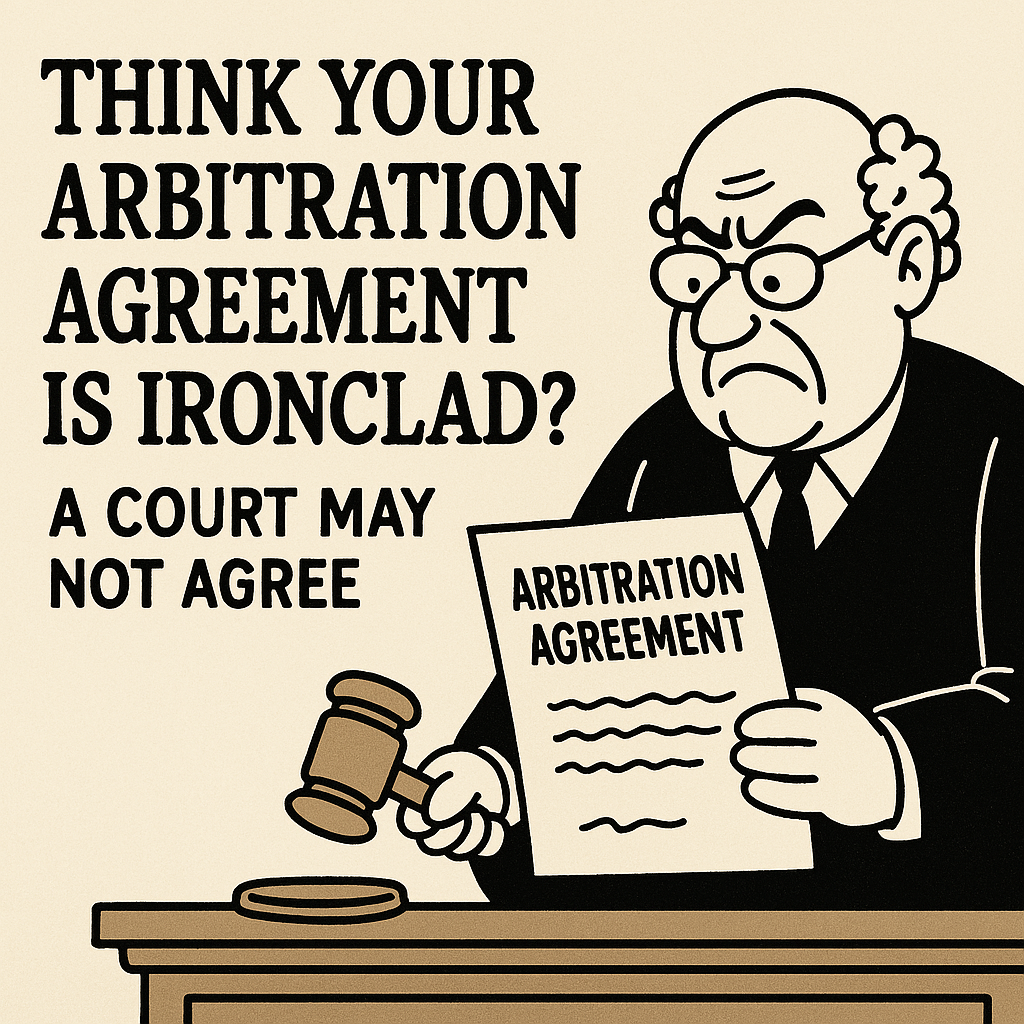Search
Are Your Company’s Arbitration Agreements Actually Enforceable? A Federal Appellate Court Just Raised the Bar.

A recent decision from the Third Circuit shows how courts are looking closely—not just at what arbitration agreements say, but also at how they’re rolled out. And even if a dispute doesn’t qualify for the new federal carveout for sexual harassment claims, employers still need to be ready to prove their agreements are enforceable.
What happened?
A former store manager sued her employer under Title VII, claiming a hostile work environment based on sex. She alleged her male supervisor treated her worse than her male peers, denied her promotions and pay, and bombarded her with rude messages. She said she complained repeatedly—both verbally and in writing—but the company took no action.
Eventually, she was fired. She filed an EEOC charge, got her right-to-sue letter, and went to court.
The company moved to compel arbitration, pointing to an arbitration agreement introduced years earlier. The employee had completed a training module that explained the agreement and how to opt out (she didn’t). The district court agreed and dismissed the case.
The appellate court disagreed—partly.
The Third Circuit upheld the district court on one point: The case didn’t fall under the Ending Forced Arbitration of Sexual Assault and Sexual Harassment Act of 2021 (EFAA). Why not? Because the law only applies to disputes that arise or accrue after March 3, 2022. Even though the employee filed her EEOC charge later, her claims stemmed from conduct—and internal complaints—years earlier.
Takeaway: Filing a complaint in 2023 won’t exempt an older dispute from arbitration under the EFAA.
But here’s the twist: the Third Circuit said the trial court jumped the gun on enforcing arbitration. Why? Because it relied on documents outside the complaint—like the training module and HR declarations—without giving the employee a chance to take discovery.
That matters because the employee raised real questions about how clear the arbitration agreement was:
- Did the policy clearly explain that she was waiving her right to sue?
- Was the agreement buried in training materials?
- Were key terms scattered across different documents?
The court didn’t decide whether the agreement was enforceable—only that those questions deserved more scrutiny. It also emphasized that under New Jersey law, an employee cannot be forced into arbitration unless there’s clear evidence that they knowingly waived their right to a jury trial—meaning contract formation, not just the terms, will be closely examined.
What should employers do?
Even if your arbitration policy is legally sound, how it was introduced matters. Expect that a court will want to see:
- Clear, unmistakable language waiving court access
- Evidence that employees understood what they were agreeing to
- A fair process—especially if the rollout was digital or passive
And if the dispute arose before March 3, 2022? The EFAA probably won’t apply—but that won’t save you if your agreement is murky.
Bottom line: Arbitration is still a useful tool—but employers have to earn it. Clear rollout, clean language, and proof of assent are more important than ever.
 The Employer Handbook Blog
The Employer Handbook Blog


